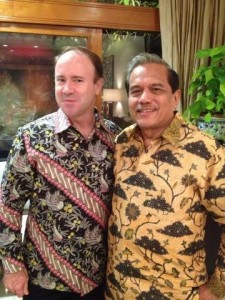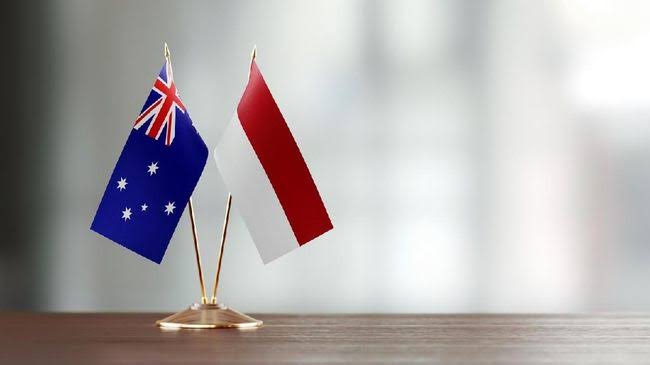
Chappy Hakim, The Jakarta Post, Jakarta | Opinion | Wed, December 05 2012, 11:09 AM
Indonesia is sandwiched between two great bodies of water: the Pacific and the Indian oceans. Indonesia, with economic growth that has placed the country in a group of countries with gross domestic products greater than US$1 trillion, will continue to grow in importance, both from a political and a security perspective.
Friendly, warm and intimate military relations between Indonesia and Australia have developed significantly since the 1980s. Yet, this does not mean that close relations between the nations had not flourished before that time.
Historically, Australia and Indonesia have been good neighbors since Indonesia became a nation. Australia was one of the first countries that officially acknowledged the independence of Indonesia on Aug. 17, 1945.
Just as in the relations between other nations in the world, there have been highs and lows reflecting the dynamism between Indonesia and Australia, each with its own cultural background and perspective.
Thus, it was inevitable for the two countries to experience some friction in their relations, such as during the period of Sukarno’s konfrontasi, or confrontation, with Malaysia in the early 1960s, or when East Timor seceded from Indonesia in 1999.
Other factors, such as human trafficking, drug smuggling and marine border disputes have also surfaced from time to time.
However, generally speaking, the dynamism of the nations’ bilateral relations has not had any significant impact on the security and stability of the Pacific region.
For the last 50 years, harmonious relations among the member nations of ASEAN and other Pacific nations have never reached the boiling point.
We can confidently say that any major direct attack on the Indonesian homeland is very unlikely to happen in the short- to medium-term. Bridging the air-sea gap around the coastlines of the region would require a massive transport and logistical effort that only a few powers have the ability to conduct.
However, while the chance of a direct invasion of Indonesia look to be remote, low-level armed clashes are still possible.
Further, the very intimate and close relationship among the military elites of ASEAN member nations and Australia has contributed positively to the security of Pacific Rim. And when we look more deeply, Australia and Indonesia are, in fact, the final decision makers in maintaining cordial ties among Pacific countries.
However, the US, as one of the most massive military powers in the world, also plays a significant role in the region.
Military relations between Indonesia and the US cannot be detached from their pre- and post-Cold War contexts.
Examining Indonesian–US military relations evokes sensitive issues, such as human rights, or terrorism, where al-Qaeda and other extremists are the main actors.
On a larger scale, the prolonged economic crisis afflicting the US and European countries and the magnificent growth shown by Asian countries such as China and India have shown the transition of power, and of strategic policies, to the Pacific region.
During the transition, Indonesia’s military ties with Australia and the US have become more important in stabilizing the region — an outcome that has become quite difficult to predict politically, since developed countries have continued to struggle with economic crises.
Hence, Indonesia and Australia had best refer back to the early 1980s to find a stepping stone to advance the military relations between the nations, whose speedy development has been supported by a willingness evinced on both sides. Both armed forces, for example, have established joint training and education programs for junior officers.
However, military training in the Pacific region should focus on the current border disputes and incidents in the South China Sea.
It is becoming Indonesia’s responsibility, as part of the Pacific community, to be able to oversee any threat to our own national interests. And now, the problem is how to maintain Indonesian-US relations within the framework of the Pacific region amid security challenges.
Closer relations between the US, Australian and Indonesia militaries can contribute to the security of the region. Joint training and education for junior officers are just two ways that closer ties can be fostered in the region.
Jakarta 7 Desember 2012
Chappy Hakim
The writer, a retired air chief marshal, was Air Force chief of staff from 2002 to 2005.


